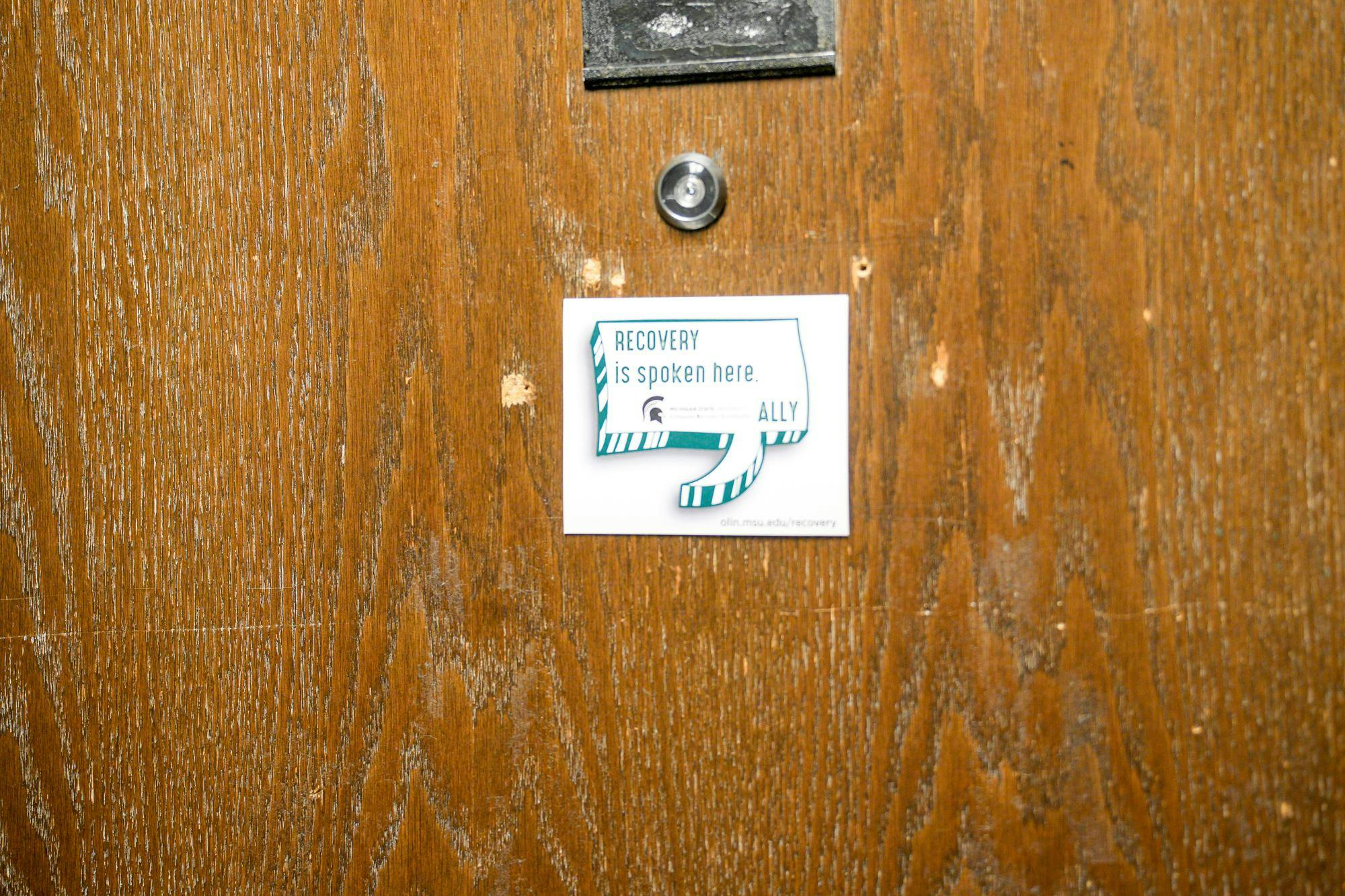As students moved into north neighborhood’s Mason Hall — myself included — this fall, we became confused as we read the signs taped to every door.
"This is a substance free and recovery housing floor, as such all substances are prohibited,” the signs stated.
We soon learned that Mason Hall's second floor is designated by MSU’s Collegiate Recovery Community, or CRC, to house its members. According to the CRC's website, the program aims to "provide a safe and supportive campus community in which students in recovery from addiction can achieve their academic, personal and professional goals."
Part of the program includes providing housing to ensure "a safe and supportive living environment where students can have a real college experience without the use of alcohol or drugs,” MSU’s health promotion website states.
However, the floor houses both students who are in the CRC and students who are not, including several students who were not aware of the floor being a substance-free community prior to moving in. This has led to some issues.
Since the beginning of school, there have been instances of substances found on the floor, including in the bathrooms, which can be potentially triggering for students in recovery.
“People will purposefully leave stuff in the bathrooms for people like us to find,” CRC member Jacob Lignell, a junior in political science, said. “We’re all in different spots in our recovery. I’m coming up on seven months next week, and I feel a lot stronger, but there are people who have less than a month, and they genuinely can’t handle having stuff just thrown in the bathroom for them to find.”
With the university’s mandate of first and second-year students living on campus filling dorm capacity, it is likely not possible to leave rooms vacant, including those on substance-free floors.
Non-CRC residents of Mason Hall's second floor learned that the program was on their floor two days before move-in through an email sent by the Mason-Abbot-Snyder-Phillips community director.
The information is not kept secret, though. MSU's Live On housing website has information about the alcohol-free housing available in Mason/Abbot halls. However, this is not a surefire way to communicate information with students, as many were still unaware.
“I had no idea about the substance-free housing floor (before moving in),” psychology sophomore Mike New said.
Lignell suggested a possible solution to this issue: a disclaimer that pops up when students click on Mason Hall during housing selection. With this in place, students would be aware of the rules prior to moving in and could make an informed decision when choosing housing.
“It would be an easy thing they could put in," Lignell said. "It would be so simple, just a little checkbox saying you’re cool with this."
Psychology junior Logan Treviño-Fica works on the floor as recovery housing support specialist. Treviño-Fica, who also works with gender-inclusive housing, or GIH, said it would be beneficial if the room process for CRC floors was similar to GIH.
“I believe it’s a person’s right to opt out of being in that space, especially because it makes things dangerous for other people — both in the case of GIH with transphobic people on the floor, and in the case of sobriety housing with people who actively want to use substances on their floor,” Treviño-Fica said.
Treviño-Fica, who has witnessed the downsides of not telling students about specialized housing upon signing up to live in a dorm with specialized housing, said he does not know why the university does not overtly tell students they may be moving into specialized housing, whether substance free or gender inclusive.
“I don’t think there’s a reason they shouldn’t,” Treviño-Fica said.
The floor's resident assistant, or RA, Olivia Feldman, who is also a CRC student leader, said the other two RAs on the floor “didn’t know” they were assigned to substance-free floors until move-in. The State News contacted one of the RAs for comment but did not get a response.
Beyond making sure students know Mason Hall has substance-free housing upon selecting to live at Mason Hall, some members of the CRC believe spreading the word about the program and recovery housing will be beneficial to those currently in the CRC, as well as students who may be struggling with substance abuse issues but do not know where to go to get help.
"One of the biggest things that we hear is making sure the student body is aware of this resource,” Chris Perry said. Perry is the Executive Director of the Jamie Daniels Foundation, a Children’s Foundation initiative that provides financial support to nine CRCs across Michigan.
Dawn Kepler, the CRC coordinator at MSU, also stressed the importance of spreading awareness about the program and recovery housing.
“It’s been a real challenge,” Kepler said. She added that students are often “oversaturated” with information about resources available to them, and they may feel overwhelmed. Kepler said that “warm handoffs,” a practice used by health care teams in which a team member communicates information about treatment or resources to an individual face-to-face, can be an effective alternative to bombarding students with emails about resources.
Support student media!
Please consider donating to The State News and help fund the future of journalism.
Discussion
Share and discuss “Collegiate Recovery Community students face challenges with dorm-living” on social media.







